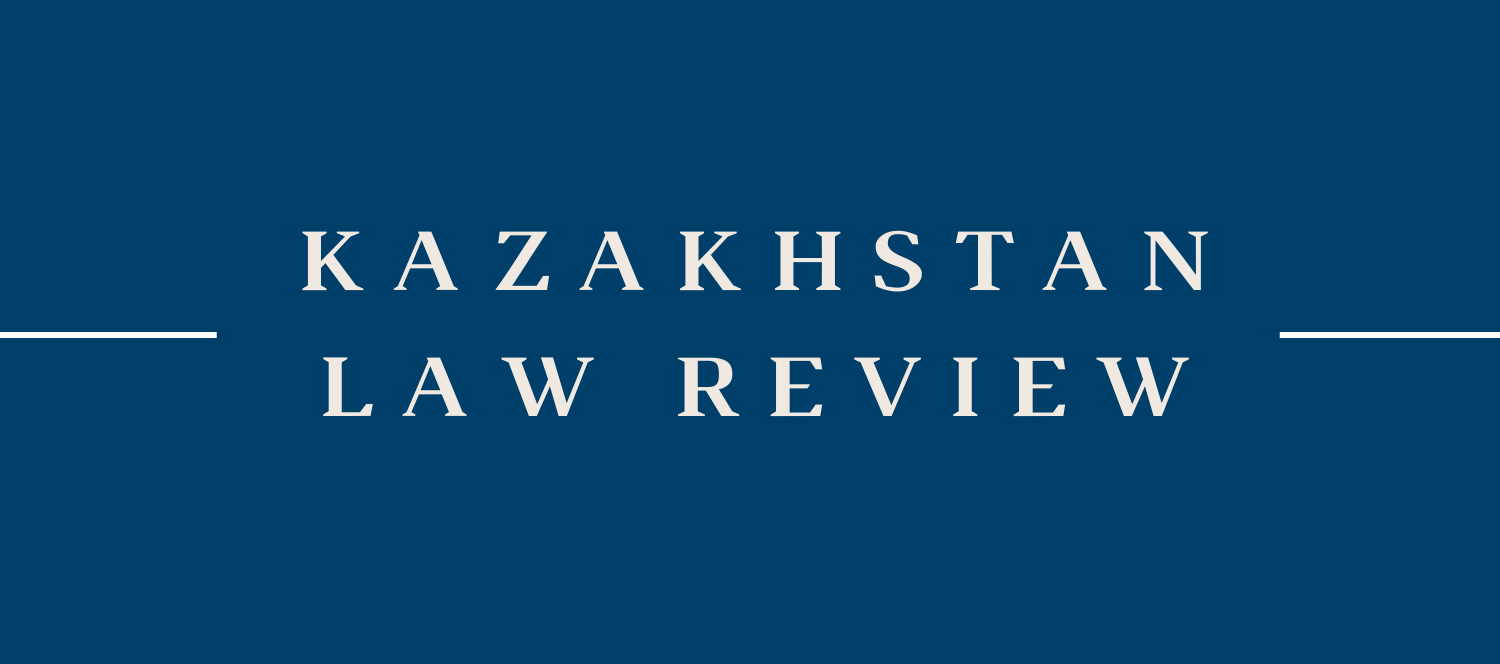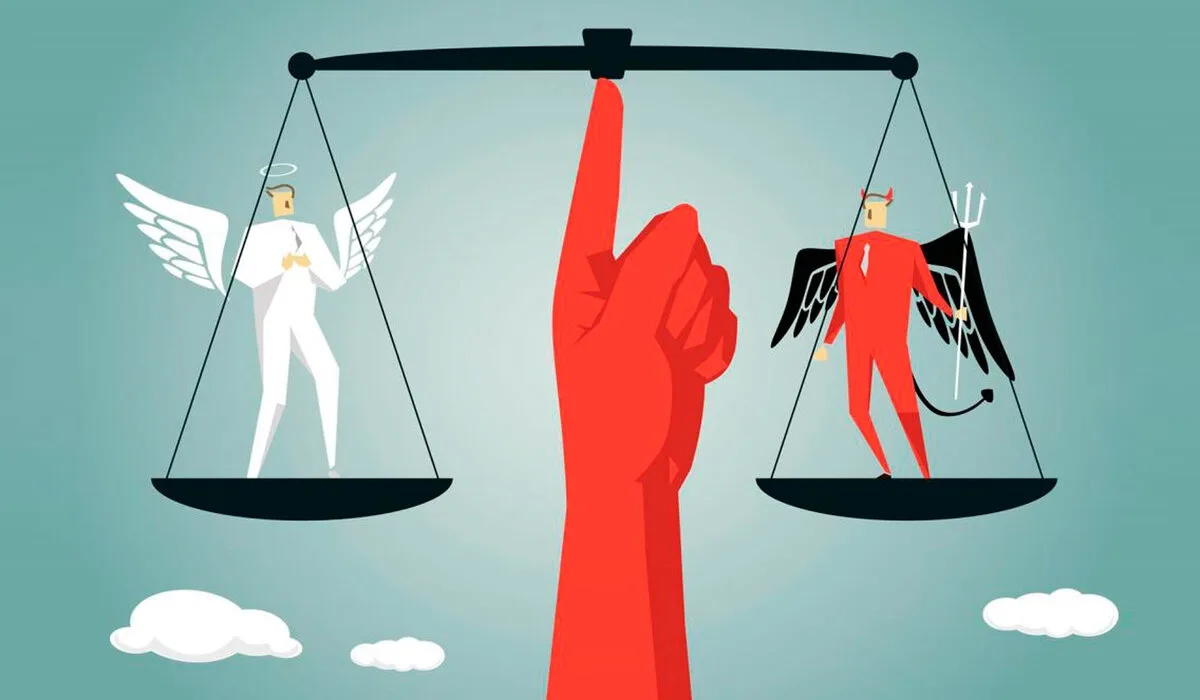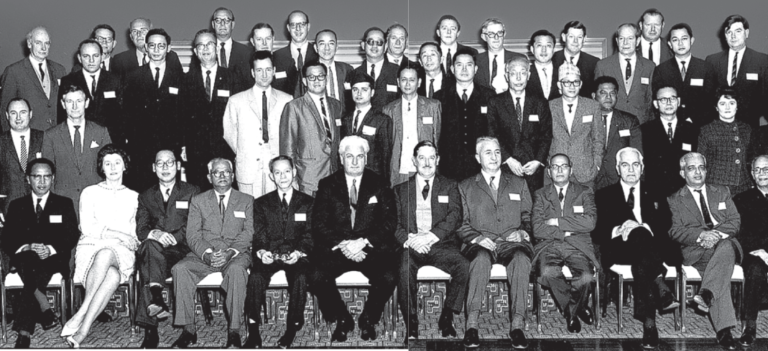Speech by Sultan Arturovich Sakhariev, Master of Law, Senior Lecturer at KIMEP University School of Law, member of the Chamber of Legal Consultants «Justus» at the International Conference «Self-government of the Legal Profession: new challenges of our time» April 28, 2023.
Dear friends,
First of all, let me thank all of our participants for the amazing speeches, materials, insights, thoughts, and ideas! It was very interesting to listen and think about, and it will be even more interesting to analyze and reflect upon in the future.
Special thanks to the organizers of the conference. It is a great and unique opportunity to discuss the regulation of the legal profession is such a diverse international environment.
It is symbolic that the very first presentation today was given by the representatives of Kazakhstan Ministry of Justice, a state body competent in the area of regulation of legal profession, on the “Impact of the Specialized Government Authority (Regulator) on the Professional Activity of a Lawyer and Activity of Self-regulatory Organizations”, whereas the last presentation today, my presentation, is given on the “Limits of Competences of the Authorized Body regarding the Legal Community”. To clarify this ironic circle of thought, I would like to explain from the beginning that I am not here to antagonize the regulator. I am not here to advocate for complete and absolute lack of state regulation.
I do not act here in my capacity of legal advisor, of a person holding the advocate’s license.
I participate in this conference as a researcher, as a beginning scholar, interested in the nature of legal regulation of our legal profession. I don’t aim here today to give anyone answers on what to do with our profession, but I hope to share some questions that probably all of us can think about. After all, regardless of who we are: criminal defense attorneys, civil litigators, leaders and management of bar associations, agents of lawyers’ regulators – all of us are united by one love and interest. That is the practice of law, and all activities related to it.
So, when I ask myself should there be a regulating authority for the legal community and where the limits of its regulation should lay, I inevitable face the initial problem: defining the “regulating authority” and the “legal community”.
Let’s start with the later: “legal community”. Who are lawyers? Who is to be considered as lawyers – members of legal profession, of legal community? The obvious answer is that legal professionals or lawyers are those who professionally, i.e., as part of their job, practice law.
In Kazakhstan it gives us a great variety of people. We have in-house lawyers, lawyers in legal consulting, legal advisors (or legal consultants), advocates (or criminal defense attorneys). But this is not it yet. We have public notaries. We have private court bailiffs (specialists in execution of court decisions). We have judges. Professional arbitrators. Mediators. Prosecutors, or as they are called in some other jurisdictions, state attorneys, or attorneys for a state. Professors of law and of legal practice, managers of law schools. Police investigators.
And all this people do different things in their practice of law: they may solve all the legal issues of their only client (i.e. in-house lawyers); they may advise on various commercial, regulatory, contract, employment matters or provide legal support with incorporation or operation of companies, in M&A transactions, conduct regulatory and legal due diligences (i.e. lawyers from legal consulting); they may represent their clients in civil disputes (i.e. legal advisors), or provide a criminal defense (i.e. advocates).
Some of them are equipped with public powers, because they are effectively an outsource of the sovereign’s authority. Public notaries are authorized to issue mandatory decisions. Private court bailiffs are authorized to arrest property.
Prosecutors are effectively in-house lawyers for a state: they consult the state on legal matters, supervise regulatory compliance and represent the interests of a state and general public (or society) in disputes.
Thus, we can see that legal community includes professionals far beyond civil and criminal litigators.
Now let’s discuss the definition of “regulating authority”. As a matter of fact, we understand there is no unified state regulating body that is authorized to regulate activities of prosecutors, notaries, judges, and in-house lawyers. And, as one popular fiction character said, it is only logical. The scope of work, level of authority and public powers, and other features of these professionals is too different. Further logical conclusion would be the necessity of different regulating authorities for different types of legal professions.
Customarily, the legal profession was a subject of self-regulation. Lawyers of England and Wales were regulating themselves through the Law Society of England and Wales, that further give birth to Solicitors Regulation Authority. Attorneys of the United States are regulated by their own bar associations. It worth mentioning that bar membership is equally necessary for any practitioner of law in the USA: be it a private litigator, or state attorney.
Going further with this thought, thinking about the limits of competences of state regulating authority, we may define these limits based on the two criteria: 1) level of delegation of authorities to professional, self-governed association of lawyers (i.e., the advocates’ bar and chambers of legal advisors);OR 2) scope of lawyers governed by the regulating authority.
Again, let’s start with the later one. What categories of legal profession should fall under the regulation of the competent state authority? Understanding that there are categories of lawyers with vested public powers with them, the top priority for a state regulation should be these categories of lawyers. I am talking here about lawyers who are entitled to issue mandatory legal acts, to bound other persons by their decisions. As another famous fictional character said: “With great power comes great responsibility”. These lawyers with great public powers should have most of attention of the regulating authority; they should have greater responsibility in terms of their ethical standards, professional training, continues education, and more.
Particular method of control and regulation is probably not for me to discuss: be it through one unified association, or directly by the state authority, etc. However, the fact that they should be the top priority seems obvious for me.
Separately, it is worth discussing the regulation of judges. While the idea of regulating judges (representatives of judicial branch of state power) by a competent state authority from executive branch of state power seems constitutionally problematic, it perfectly fits with the idea of judges being regulated by the same self-regulating bodies as other lawyers-participants of judicial process: advocates and legal consultants. Such regulation may ensure the same level of professional training, same ethical standards and obligations. This, however, requires a great level of reform, implying almost complete withdrawal of state regulating authority from the regulation of self-regulating association of lawyers, membership of prosecutors on the same bars and chambers, etc.
Speaking of whom…
Since prosecutors are effectively state attorneys, wouldn’t it make more sense to make them another important subject of state regulation by a competent authority regulating lawyers? The demilitarization of prosecutor’s office (i.e., getting rid of the military ranks and uniform) is a different, yet a relevant discussion. May be expanding the competence of state regulating authority over the activities of prosecutors is another way of defining the limits of the same competence. Let us consider a system, where prosecutors will be state attorneys within the system of Ministry of Justice: just lawyers for the state, wearing suits, giving legal advice, representing the state and public’s interests in disputes. Wouldn’t this make more sense than a military-alike structure involving differently trained lawyers that are subject to different ethical and professional standards compared to their vis-à-vis and procedural opponents?
Going to regulation of legal advisors, advocates, in-house lawyers and lawyers from legal consulting, considering their lack of public powers, their strict regulation by a state regulating authority seems to me as not as important as of the lawyers mentioned above. Nevertheless, ensuring high-level of ethical and professional standards is important. In this regard, the regulation of these categories of lawyers through self-governed professional associations with minimum involvement of state regulating authority seems to me as the most convenient and effective way of regulation. Allow me to elaborate and this will be my last point for today.
Lawyers of this last discussed category are involved in various types of works. Their works is so variegated and heterogeneous it is impossible to regulate it by a unified standard. It involves much more than just representation, litigation, and straightforward advising. It also involves transaction structuring, deals negotiations, tax structuring, debts restructuring, countless types of legal due diligence services, and so on. How can we, for example, develop attestation mechanisms that will be sufficient and will not be excessive for specialists in all of the mentioned works? How can a unified state authority or chamber develop ethical standards for all of them? Lawyers dealing with start-ups and digital law may have specific business practices and customs, unlike lawyers in conventional transaction structuring. Does it mean they should not have ethical rules at all? Certainly not. Can legal professionals that are not familiar with digital law practices develop standards suitable for these “IT-ish, start-up-ish” lawyers? I doubt it. At least not entirely. Yes, the rules of communications with state authorities, courts and general public may be identical, however the rules of communications with colleagues, clients, as well as some provisions of code of conduct (such as dress-code, online behavior) may be different. It makes sense in this regard to allow these lawyers to unite into a specific chamber of legal advisors that will professionally examine and regulate activities of such lawyers. And the same similarly may work for lawyers specializing on various industries (R&C, FMCG, pharmaceuticals, tobacco, telecom, etc.) and areas of law (labor disputes, tax disputes, etc.).
This approach will also ensure faster development of different aspects of our professions. Without strict centralized regulation different association will come up with different solutions to various issues. There will be more practices in terms of internal documentation, use of official chambers’ official websites, AI, bots, etc. This, in turn, will allow a broader scope of development of best practices as will be regulated by the market.
Last, but not least, this category of lawyers is the one that serves as a line of defense against violations by the state itself. It is these lawyers that work as representatives in, for example, human rights protection. We remember that human rights – are relations between individuals and state, and the state is the only entity that can violate human rights. It does not make much sense to create a system, where the state decides who is going to oppose it in case of its own wrongdoing, and how this opposition will be conducted. As an example of competence limitation here, I believe a state licensing of advocacy activities is something that should be reconsidered, where advocacy bar itself should decide who is worthy of being an advocate. To illustrate this more, I will share with you an example provided by Ukrainian advocate Mr. Ilya Novikov a while ago: https://youtu.be/f9Psde97cEc
Considering the aforementioned, I suggest a further discussion of a more active role and competences of state regulating authority in relation to lawyers with vested public powers, expansion of its competences on prosecutors (who are supposed to be a more civilian structure), and limitation of its competences in relation of lawyers lacking public powers (i.e., advocates, legal advisors, etc.), for the purpose of better balance, and availability of more resources for their work. The regulation of these lawyers should be, in turn, delegated to their self-governed professional associations with minimal advisory involvement of a state authority. State authority may serve an organizer of public forum for discussions, researches and promotion of rule of law. Where, by the way, the law schools and professors of law are happy assist, even without of any regulation.
Thank you.




